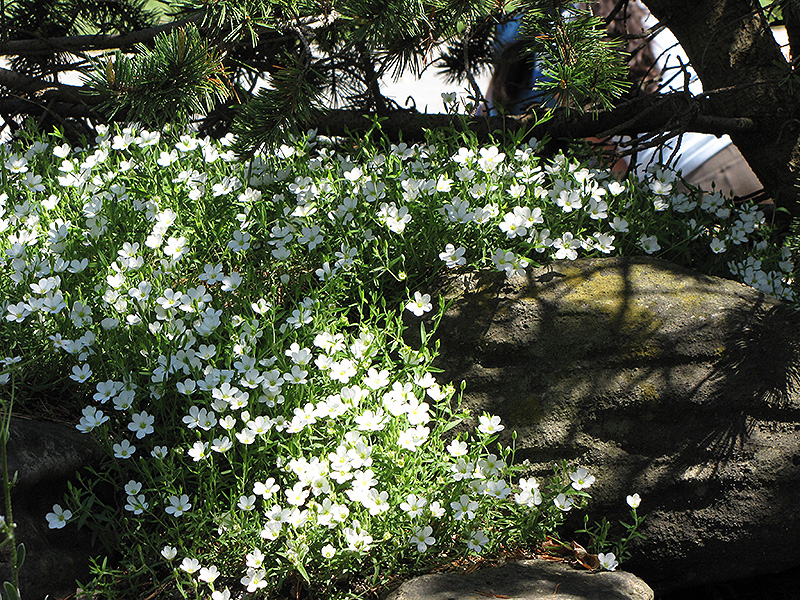Plant Height: 2 inches
Flower Height: 4 inches
Spread: 12 inches
Sunlight:
![]()
![]()
Hardiness Zone: 2a
Description:
A very classy little alpine or rock garden plant which forms a low evergreen cushion of dark green foliage; bears loads of large white flowers later in spring through early summer; great for edging paths, between flagstones, or in the rock garden
Ornamental Features
Mountain Sandwort is bathed in stunning white cup-shaped flowers with chartreuse eyes held atop the stems from late spring to early summer. Its small grassy leaves remain dark green in color throughout the year.
Landscape Attributes
Mountain Sandwort is a dense herbaceous evergreen perennial with a ground-hugging habit of growth. It brings an extremely fine and delicate texture to the garden composition and should be used to full effect.
This is a relatively low maintenance plant, and should only be pruned after flowering to avoid removing any of the current season's flowers. It is a good choice for attracting butterflies to your yard, but is not particularly attractive to deer who tend to leave it alone in favor of tastier treats. It has no significant negative characteristics.
Mountain Sandwort is recommended for the following landscape applications;
- Mass Planting
- Rock/Alpine Gardens
- Border Edging
- General Garden Use
Planting & Growing
Mountain Sandwort will grow to be only 2 inches tall at maturity extending to 4 inches tall with the flowers, with a spread of 12 inches. Its foliage tends to remain low and dense right to the ground. It grows at a slow rate, and under ideal conditions can be expected to live for approximately 5 years. As an evegreen perennial, this plant will typically keep its form and foliage year-round.
This plant does best in full sun to partial shade. It prefers dry to average moisture levels with very well-drained soil, and will often die in standing water. It is considered to be drought-tolerant, and thus makes an ideal choice for a low-water garden or xeriscape application. It is not particular as to soil type or pH. It is somewhat tolerant of urban pollution. This species is native to parts of North America. It can be propagated by division.

